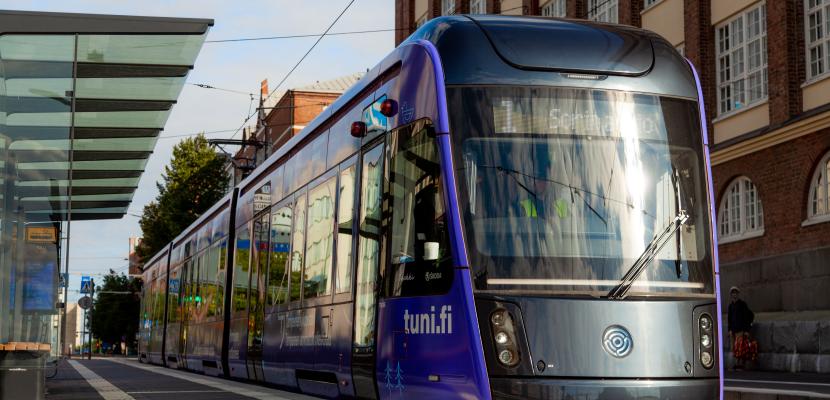
Multi-stakeholder collaboration within logistics innovation ecosystem facilitates carbon-neutrality

About this good practice
The Lyyli Living Lab in Tampere is development environment within the Tramway system. Its purpose is to foster innovation and experimentation in urban logistics solutions. It exemplifies how collaborative efforts drive innovation in a socially responsible manner.
Problem: The need for innovative urban mobility and logistics solutions that are sustainable, efficient, and user-centric.
Context: Tampere Tramway system. The city aims to create a carbon-neutral and digitally advanced urban environment.
Objectives:
- Develop and test urban mobility solutions.
- Create a real-world environment for experimentation.
- Obtain references for sustainable logistics practices.
Implementation:
- The Lyyli tram car, equipped with cutting-edge technologies, serves as the testbed. It allows for in-context trials during regular traffic, simulating real-world logistics scenarios.
- New services are tested within the tram’s operational context.
- Technology trials occur during regular traffic.
- The self-driving bus, bridging the last mile, exemplifies the lab’s commitment to practical experimentation.
Stakeholders and Beneficiaries:
- TAMK: Offers expertise and resources.
- ITS Factory: Provides an ecosystem for collaboration.
- TURMS (Tampere Urban Rail Mobility Services)
- Residents and Commuters
- Companies Insights gained from last-mile experiments inform best practices
- City Authorities: Achieving sustainability goals by optimizing logistics and reducing environmental impact
Expert opinion
Resources needed
Resources depend on physical context of sustainable mobility Living Lab.
Living Lab environment was build-in Lyyli-tramcar and the City of Tampere tram system in years 2021-2022 with a rough budget of 250.000€. The budget of Lyyli Living Lab operations in period of 2023–2025 is about 750.000€.
Evidence of success
- Innovations tested within the Lyyli Living Lab provide e.g. training of new tram operations via simulation environment installed in Lyyli.
- Lyyli Living Lab demonstrates how to connect last mile services to Tram information systems as part of travel chain
- Passenger travel innovations can be implemented to cargo logistics helping to achieve last mile sustainability targets.
- Continued access to cutting-edge technologies such as lidar technology trial installations for passengers’ safety.
Potential for learning or transfer
The platform provides an unique opportunities for learning and innovation with following aspects:
Learning Opportunities:
- Experiment-Driven Learning: The Lyyli tram car becomes a classroom. Students, engineers, and innovators learn by doing. Experimentation fosters adaptability, problem-solving, and resilience.
Research Potential:
- Data Collection: The Lyyli Living Lab generates valuable data. Researchers analyze passenger behavior, service usage, and technology performance.
- Innovation Studies: Investigating new services, technologies, and their impact on urban mobility provides rich research material.
Innovation Pathways:
- Collaborative Innovation: Industry players collaborate, sparking creativity. New ideas emerge, leading to breakthroughs.
- Iterative Prototyping: Innovators iterate on tram-based solutions. Failures become stepping stones toward success.


